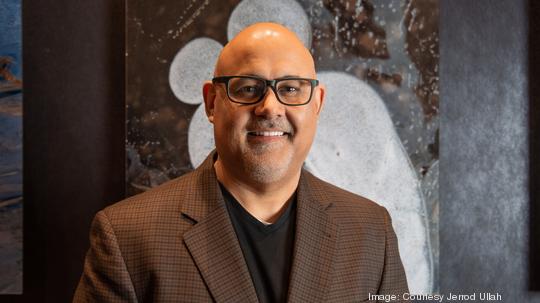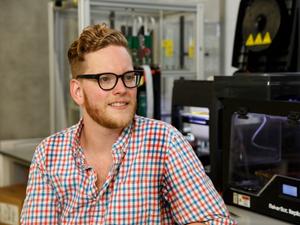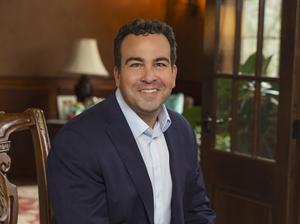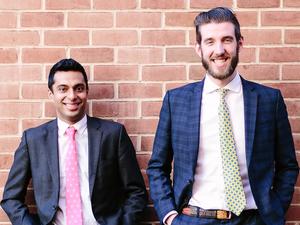
A virtual care startup working to help doctors manage telehealth is raising its first funding round to build up its team and expand its reach, after breaking out of stealth mode and into an explosive growth year fueled by the coronavirus pandemic.
Reston’s Healthtalk A.I. LLC, whose outreach platform facilitates communication between physicians and their patients to address gaps in care, is raising $1.5 million to expand its infrastructure into new markets and grow its customer base, said founder and CEO Jerrod Ullah. Roughly one-third of the capital is committed for this round, he added.
The new funding would also allow the company to hire two sales leads, an implementation and customer success employee, and a full-time marketing executive, Ullah said. He has largely bootstrapped the business since its birth in 2017.
Healthtalk helps provider groups and health systems identify problems both in clinical care, such as symptoms that require appointments, and patient satisfaction — for instance, how the experience of a recent ER visit could’ve been improved. It uses artificial intelligence-driven technology to enable those interactions. The ultimate goal is to “see if we can fundamentally change the way providers and patients connect and communicate,” Ullah said, “and I think we have.”
Here’s how it works: The tech handles outreach on behalf of the providers, asking patients over automated text about symptoms and experience. Then its bot technology sets up a digital appointment for the patient which it hosts on its platform. But telehealth is just one component of its service; the platform aims to drive virtual care encounters and cut the administrative workflow that many doctors don’t have the bandwidth to handle.
That’s why Ullah, a former neonatal intensive care nurse, launched the venture. In the era of accountable care organizations, the widespread shift to value-based care changed how providers are reimbursed — and as they drown in data, time for outreach diminishes, he said.
Contacting patients over text or email, for instance, “is something that’s been there, but really to be effective, you have to be able to have an automated dialogue that elicits a certain amount of information — so that was the technology that we created,” Ullah said. “And then we had to do something about it.”
The business spent a couple years in stealth mode before starting sales in 2019. Before the pandemic, the platform largely handled patient recovery follow-up for clinicians. But when the global health crisis drove providers to see patients remotely, Healthtalk saw massive demand for its platform, specifically to automate mass communication for doctors — for instance, to assess patients with Covid symptoms and schedule virtual appointments.
That ballooned the startup’s client base — from two to 24 — and led to more than 1,000% revenue growth during 2020, Ullah said, declining to disclose specifics. But, he said, “our target this year is really to quadruple that.” Healthtalk is now live at more than 35 sites with 300,000 patients on the platform.
Growing that customer roster sits high on the priority list for 2021. Specifically, the company will look to add another 100 to 200 physician practices nationally. Locally, it already serves provider groups affiliated with Virginia Hospital Center and Inova Fair Oaks Hospital, among others.
And there’s incentive for providers to use the platform; namely, if they want to improve their scores with the Centers for Medicare & Medicaid Services, Ullah said. The agency’s Hospital Consumer Assessment of Healthcare Providers and Systems, or HCAHPS, survey helps determine reimbursement rates. Physician groups or their hospital partners can improve lagging scores by following up with patients to decipher what they could’ve done better and, perhaps, increase patient retention. That process often proves too time-consuming for providers, "so we help them scale that,” Ullah said.
“Patients understand now more than ever that virtual care is a real option, so for health care providers, they need essentially a virtual strategy,” Ullah said. “It’s not enough to just have an app that does telehealth, but what is your virtual strategy?”
In addition to his clinical background, Ullah has more than a decade of experience in health care product management. He’s worked for Bethesda’s GetWellNetwork; Lincolnshire, Illinois-based Zebra Technologies Corp.; Falls Church’s Inova Health System; San Diego-based CareFusion, now part of Becton Dickinson; and a couple of other startups. He also led his own consulting practice for four years before going full-time with Healthtalk in April 2020.




